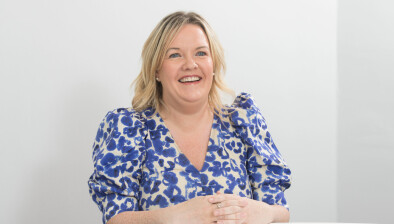Alan Stewart: Inheritance tax - consider all the options
Alan Stewart, tax partner at chartered accountancy practice Meston Reid & Co urges individuals to consider all the options when it comes to inheritance tax.

Alan Stewart, tax partner, Meston Reid & Co
There’s unlikely to be any single solution for people looking to minimise their estate’s exposure to inheritance tax (IHT) liabilities in future. Rather, it’s probable that a combination of steps taken over time will collectively prove most effective in helping to manage and distribute your wealth to minimise IHT payable after your death.
As ever when it comes to protecting assets, the key lies in long-term planning – and taking a carefully considered view of your options before settling on a course of action.
It’s important to start your planning by taking the first important step of making a will or if one was made years ago reviewing it and updating where necessary.
As part of this review, you should take the opportunity to consider what assets you need to meet your own future financial requirements and give some thought to what surplus assets you would be happy to give away and to whom. This can often be the hardest and most uncomfortable decision to make.
Once you have determined all the assets you hold it is useful to calculate your potential IHT liability and then you can consider ways to reduce the IHT exposure.
The potential options to consider range from simply starting to gift monies away. Each year, for example, you are allowed to gift away £3,000 which will not be subject to IHT or up to £250 to any number of people each year. It is also possible to make larger gifts called Potentially Exempt Transfers which will be fully free of IHT and will be outside your estate if you survive seven years after you make the gift.
While you are considering your IHT exposure you should try to also maximise reliefs that are available such as Agricultural and Business Property Relief. These may not be available at present but it is often possible to make changes to how assets are used or change the type of assets held to obtain these reliefs.
Pensions also can form a greater part of IHT planning: if individuals have the means to leave their pension pot untouched, using other assets to live on, current pensions rules allow pensions to be passed on to beneficiaries free of IHT.
Traditional IHT planning has often involved the use of trusts. These are still used for IHT planning and are still particularly useful as a means to protect assets. Other options include the formation of a Family Investment Company, which are becoming increasingly popular and can be used as an alternative to a family trust.
Overall, there’s no magic bullet to take all your IHT worries away. It’s almost certainly going to involve a mix of steps that work for you in your individual circumstances.
It’s perhaps best to think of it as a process: seeking professional advice and carefully going through all the available options – then taking time to digest those and shaping a long-term approach that you’re comfortable to move forward with.







